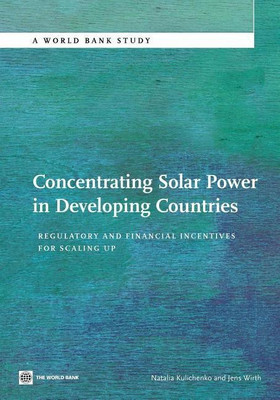Concentrating Solar Power in Developing Countries(English, Paperback, Kulichenko Natalia)
Quick Overview
Product Price Comparison
At present, different concentrating solar thermal technologies (CST) have reached varying degrees of commercial availability. This emerging nature of CST means that there are market and technical impediments to accelerating its acceptance, including cost competitiveness, an understanding of technology capability and limitations, intermittency, and benefits of electricity storage. Many developed and some developing countries are currently working to address these barriers in order to scale up CST-based power generation. Given the considerable growth of CST development in several World Bank Group partner countries, there is a need to assess the recent experience of developed countries in designing and implementing regulatory frameworks and draw lesson that could facilitate the deployment of CST technologies in developing countries. Merely replicating developed countries' schemes in the context of a developing country may not generate the desired outcomes. Against this background, this report (a) analyzes and draws lessons from the efforts of some developed countries and adapts them to the characteristics of developing economies; (b) assesses the cost reduction potential and economic and financial affordability of various CST technologies in emerging markets; (c) evaluates the potential for cost reduction and associated economic benefits derived from local manufacturing; and (d) suggests ways to tailor bidding models and practices, bid selection criteria, and structures for power purchase agreements (PPAs) for CST projects in developing market conditions.|Security sector reform (SSR) is widely recognized as key to conflict prevention, peace-building, sustainable development, and democratization. SSR has gained most practical relevance in the context of post-conflict reconstruction of so-called ""failed states'"" and states emerging from violent internal or inter-state conflict. As this volume shows, almost all states need to reform their security sectors to a greater or lesser extent, according to the specific security, political and socio-economic contexts, as well as in response to the new security challenges resulting from globalization and post-9/11 developments. Alan Bryden is a researcher at the Geneva Centre for the Democratic Control of Armed Forces. Heiner Hnggi is assistant director of the Geneva Centre for the Democratic Control of Armed Forces.


